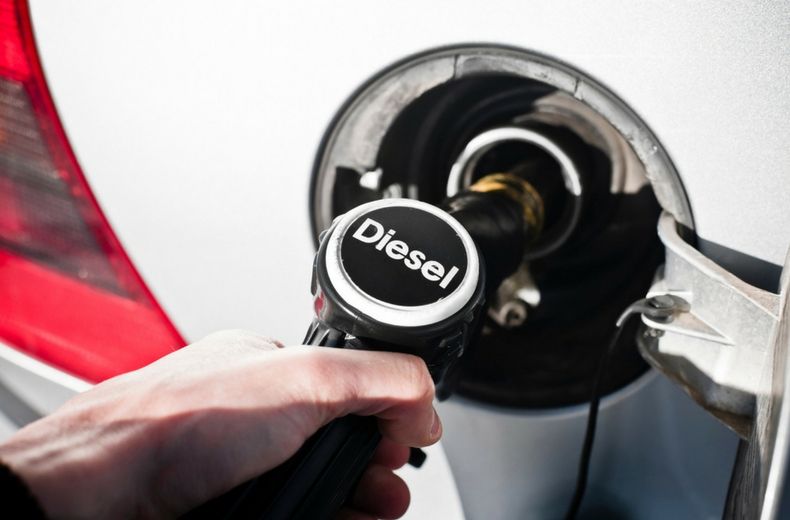We’ve put together everything you need to know about buying a diesel car right now.
5 Star Defaqto rated cover
RAC Comprehensive Car Insurance Plus has been given a 5 Star Rating by Defaqto. Get a quote online today.


What do I need from a car?
When looking to buy a new or new-to-you car and considering diesel, before you even think about the impact of law changes, added local charges, changed tax bands, resale values and environment impact – and of course it’s important to know which fuel type best suits your everyday driving needs.
In an ideal world, most of us may want to switch to hybrid or fully-electric models in a heartbeat, but the reality of high up-front costs, suitability for long-distance driving, range anxiety and lack of charging points make petrol and diesel options still more practical.
To find out what best suits your driving needs, the first thing we'll look at in the section below is your driving habits.
Does diesel suit my driving habits?
The sale of new petrol and diesel vehicles will be banned by 2030 (with the aim of getting them off roads entirely by 2050), meaning you still have plenty of time to consider which fuel type currently suits you and your lifestyle.
New diesel cars typically cost more to buy than petrol vehicles but have a better fuel economy – in some cases using up to 30% less than their unleaded counterparts.
If you’re going to be using your car for repeated, long motorway journeys with a high annual mileage, then better fuel economy could be what you’re looking for.
If you find you’re mostly doing short urban journeys, a diesel should probably not be your first choice.
Slow and short drives can clog diesel particulate filters (DPFs). Driving diesels on longer, faster routes helps the system automatically regenerate, burning off the accumulated soot in the filter.
DPFs are the systems – required by law – that reduce harmful pollutants in exhaust emissions. Clogged DPFs are difficult to clean and expensive to repair.
Furthermore if you are routinely driving short urban journeys, busy towns and cities typically have poorer air quality which affects our health, this is caused by NOX emissions which diesel produce more of, so petrol cars are more suited to these driving environments.
When driving in the country or in less built up areas, however, the air quality will be better, so the primary concern for road users is CO2 which damages the environment, diesel typically produces less CO2 than petrol cars, so they are more suited to these types of driving environments.
For more informations till on what fuel type best suits your driving needs take our ‘Petrol or diesel’ quiz to help you decide.

RAC sale – up to 33% off*
• Roadside cover from £5.29 a month†
• We get to most breakdowns in 60 mins or less
• Our patrols fix 4/5 breakdowns on the spot

Should I buy new or second hand?
Of course this will depend on your budget, but if you’re buying second hand and the car predates September 2016, be aware it may not meet the latest set of emissions standards - which could lead to additional road charges in urban centres, alongside parking surcharges.
If you’re buying new – then your car will meet the new Euro 6 guidelines as required by law and at present, is unlikely to be liable for clean air/ultra-low emission zone charges.
- Euro 1 to Euro 6 – find out your vehicle’s emissions standard
- The real facts on 'dirty diesels'
- 11 ways to reduce your driving emissions
- Exhaust repair
Will I face charges for buying a diesel car?
With diesel coming under more scrutiny as the Government works to implement its clean air policy, working out if it’s a financially sound decision in the long run, is becoming increasingly difficult.
If you tend to drive into urban areas on a regular basis it’s important to consider of additional charges that some local authorities may levy if a diesel vehicle does not conform to a Euro 6 emission standard. The most high-profile of these is the London ultra-low emission zone, due to come into effect in 2019.
As well as meeting the new Euro 6 emissions standards, new cars are also required to pass real-world driving emissions tests – known as RDEs.
RDEs are part of more stringent testing procedures designed to give a more accurate emissions reading and assessment of fuel economy. RDE1 testing came into force in September 2017.
If you’re buying a new diesel from April 2018, you will be subject to the VED tax hike as outlined in 2017's Autumn Budget for the first year of ownership.
All cars that fail to meet RDE2 (which will become the standard test for new diesels from September 2019) will have their First Year Tax rate raised by one band. Currently no diesels meet the RDE2 standard, so all new diesels will be subject to the tax hike – unless manufacturers react quickly.
You won’t face an increase in VED for buying a second-hand diesel car providing it was registered before April 2018.
Driving in low emissions zones
In October 2017, a toxicity charge (T-Charge) was introduced into London’s congestion charge zone requiring any cars (both petrol and diesel) that don’t meet the Euro 4 emissions standards (2005) to pay an additional fee on top of the congestion charge.
If you’re buying a diesel car you should also be aware of similar local authority plans that may come into place in the future.
The T-Charge is set to be replaced by an Ultra-Low Emissions Zone in 2019 with stricter penalties expected to be enforced.
If these zones are implemented in other cities, it’s likely all diesel vehicles that do not meet the Euro 6 standard will be liable for some form of charge and/or restriction.
Keep an eye out for announcements from your local authority on your area’s clean air zones.
Parking surcharges
Additionally, some local authorities have recently implemented or are consulting on introducing diesel surcharges on resident parking permit schemes. You should check with your local authority to see whether your diesel is impacted.
Will a diesel car lose its value?
This remains questionable. If the demand is there, resale values might hold although research from the RAC suggests 42% of diesel drivers are concerned about the resale value of their vehicle.
The Society of Motor Manufacturers and Traders (SMMT) recently reported a 5.1% drop in new car registrations, with diesel experiencing a huge 24.9% fall in new registrations from 2017 to 2018.
But there are still plenty of reasons not to ditch diesel, especially if you’re looking for a longer-term investment and better fuel economy.
Can I upgrade my older diesel?
If you currently own an older diesel vehicle and want to upgrade to a new and therefore greener equivalent, you can also benefit from manufacturer scrappage schemes.
Many car makers are already offering between £1,000 and £8,000 for diesel vehicles to be traded in.
Audi, BMW, Ford, Hyundai, Kia, Mercedes-Benz and Volkswagen are among those to have launched schemes.
Most of them require vehicles to fall under Euro 1-4 standards which, in the majority of cases, will have been registered before December 2009.
And it’s also worth remembering that the Government has a plug-in car grant should you wish to switch to an ultra-low emission vehicle, though this is not dependent on current diesel ownership specifically.
Is driving a diesel bad for the environment?
While they produce less CO2 than petrol cars, diesel exhausts can emit health damaging pollutants like nitrogen oxides.
The car manufacturing industry has taken huge strides in reducing diesel’s impact on air quality and all new mass-produced cars must meet the Euro 6 emissions standard which emit less than their older equivalents.
As a general rule of thumb, the newer the diesel, the less damaging it will be to our environment, though how much they emit can be dependent on real world driving.
Diesel vehicles remain popular because of their fuel economy, lower CO2 emissions and because their engine characteristics make them preferable for carrying heavy loads.
If you are worried about the impact of driving a diesel on the environment and the future charges it might incur, you may want to look at hybrid or electric alternatives - but think hard about the sort of driving you are going to be doing. Ultra low emission vehicles are much less suited to longer distance driving and carrying loads.
Want more useful content like this sent straight to your inbox?









